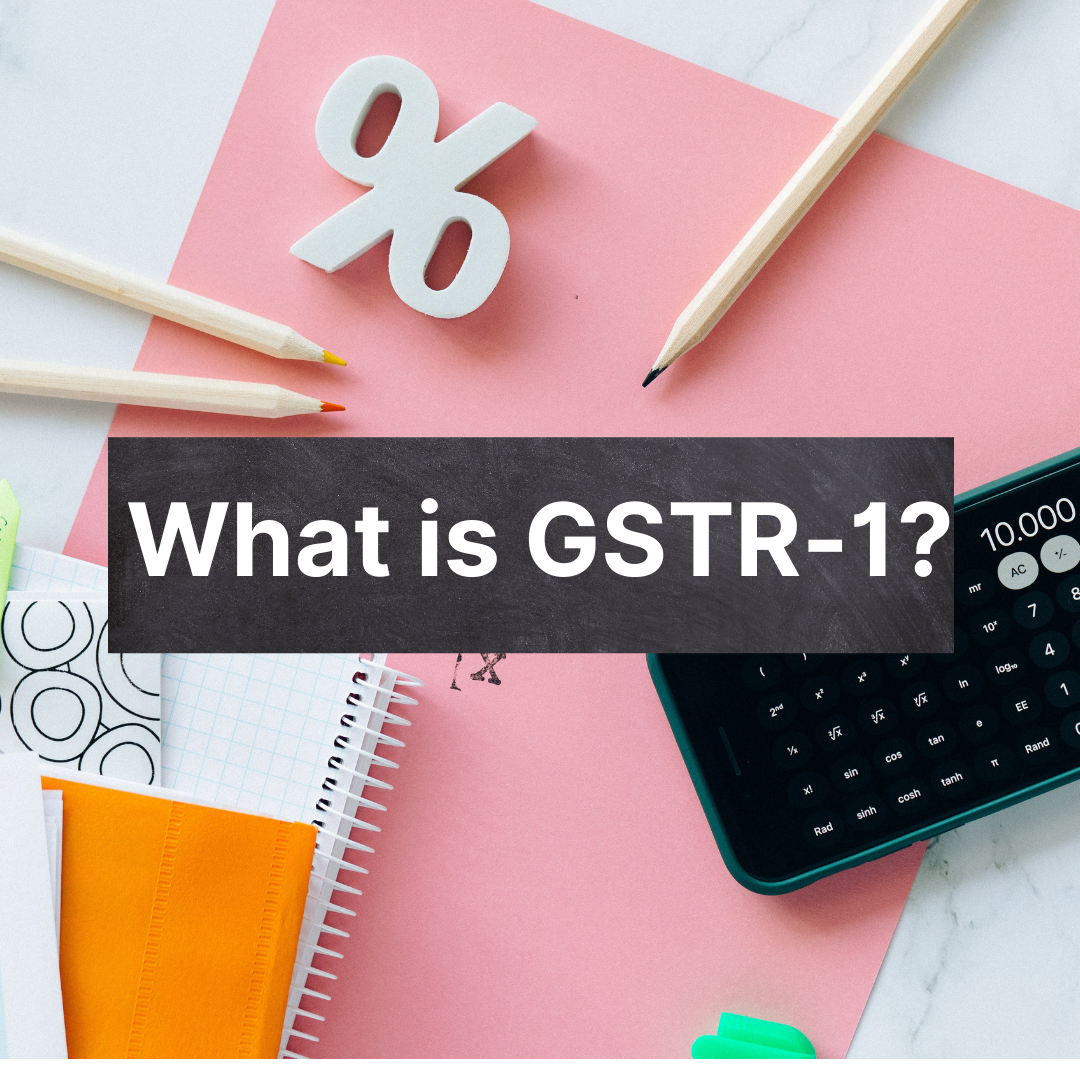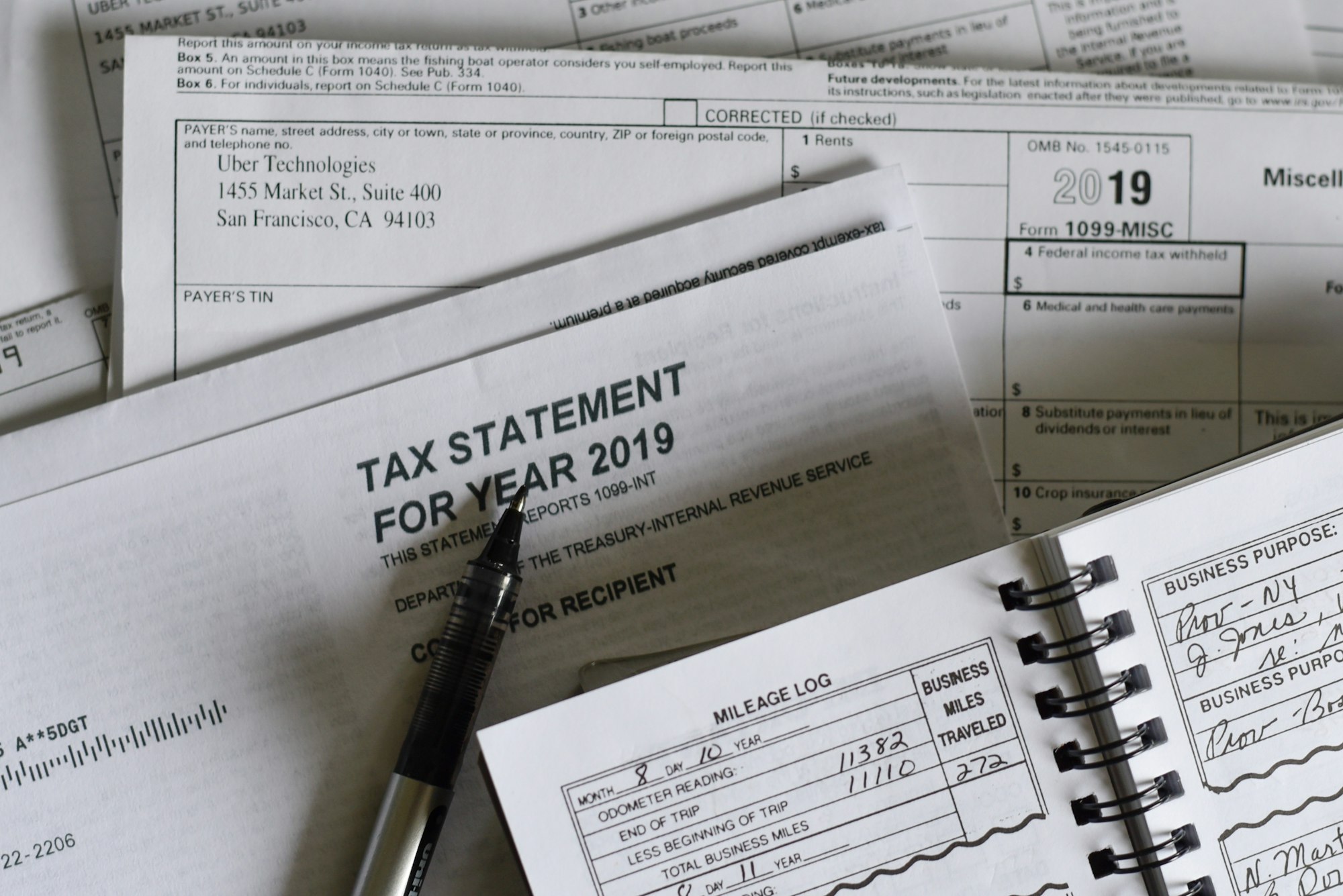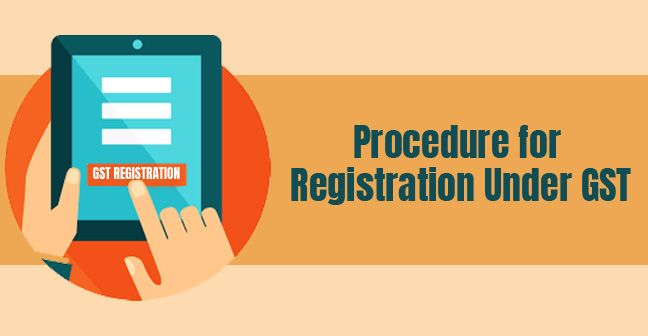Taxes play an essential role in the governance of a country. They enable the government to provide and develop basic infrastructure and facilities for citizens, thereby assisting the country's advancement.

Taxation remunerates public goods and services and plays a vital role in the social contract between citizens and the economy. A government's legitimacy is determined bais on how taxes are collected and spent in the country.
The Income Tax Act, enacted in 1961, is the statute that governs everything related to taxation. It includes income tax levy, collection, administration, and recovery. The act's primary goal is to consolidate and amend the country's taxation rules. While taxation is incorporated for a country's betterment, it is complicated and seen as burning a hole in taxpayers' pockets.
The Indian government introduced section 80 deductions to balance the needs of taxpayers, as it allows taxpayers to take advantage of a variety of tax deductions.
Taxes are an unavoidable part of adulthood. When you begin earning money, you must understand your tax liability, how much you must pay, and how much you can save. It sounds complicated, but it doesn't have to be. The government has provided numerous exemptions under various sections of the Income Tax Act that can be advantageous to eligible taxpayers.
This article covers an in-depth breakdown of Section 80 deductions and their subsections. Read ahead to understand how various options like investments, premiums paid, loan repayment can be your resort to save on taxes, and how you can make the most of it.
What is Income Tax?
Before we move on to Tax deductions, it is essential to understand income tax and its application to Indian citizens.
Income tax is a tax imposed on an individual's annual earnings. The amount of tax you pay is determined by how much money you earn in a fiscal year. Income tax payments, Tax Deducted at Source (TDS)/ Tax Collected at Source (TCS) payments, and Non-TDS/TCS payments can all be made online. To make these payments, all taxpayers must provide the necessary information. The entire procedure is simplified and expedited.
For the fiscal year 2020-21, income tax is levied on all residents whose annual income exceeds Rs.2.5 lakh per annum. If an individual's income exceeds Rs.10 lakh per year, the maximum tax they can pay is 30% of their income plus a 4% cess.
Who is eligible to pay Income tax?
Establishments such as Corporate entities, Families Undivided in Hinduism (HUFs), Corporate entities, Companies Municipalities
Artificial Judicial Figures, Association of Persons (AOP), or a body of individuals (BOI) are eligible to pay taxes. These entities are expected to file Income tax Returns if they fall under the tax slabs provided by the government for each fiscal year.
What are deductions?
Deductions lower your taxable income. These are the amounts that the Income Tax Department enables you to deduct from your income, reducing your tax due.
Gross Income is the sum of all income categories.
Deductions - Gross Income = Taxable Income
What are Section 80 deductions of the Income Tax Act?
As discussed earlier, section 80 comes under Chapter VI A of the Income Tax Act, which includes various methods to save taxes for the taxpayers.
Section 80 allows taxpayers to claim tax deductions and reduce their taxable income. The deductions are divided into different sections, as mentioned below.
Section 80c: Investments
Section 80C of the Income Tax Act of India identifies several expenses and investments that are excluded from paying income tax. It permits an investor to deduct up to Rs.1.5 lakh from their total taxable income each year.
Individual taxpayers and Hindu Undivided Families fall under the eligibility criteria of Section 80C. Corporate entities, partnership firms, and other businesses are not eligible for Section 80C tax deductions. Here's a list of investment options and how they reduce tax liability:
Life insurance premiums:
Premiums paid for life insurance policies are tax-deductible up to the 80C limit. These exemptions apply to insurance held by the self, spouse, dependent children, and so on. The same exemptions apply to Hindu Undivided Family members.
Currently, an insurance policy's annual premium of 10% (of the total sum assured) is tax-free under this arrangement. This clause was changed on April 1, 2012. Previously, premiums of up to 20% (of the total guaranteed) were eligible for tax exemption under Section 80C deduction.
Repayment of principal amount on home loan:
Section 80c ensures that the EMI amount used to repay the principal amount on your home loan is also tax-deductible. Reimbursement of your home loan consists of two parts: the principal and the interest. While the interest portion of the compensation cannot be claimed as a deduction under Section 80C of the Income Tax Act, the corpus amount most certainly can.
Tax Saving Fixed Deposits (FD):
Tax Saving FDs are fixed deposit programs offered by banks and post offices that allow tax deductions under Section 80C. These FDs have a 5-year lock-in term and a maximum tax exemption of Rs.1.5 lakh (on the principal amount). The returns on such instruments, on the other hand, are taxed.
Sukanya Samriddhi Yojana:
The Sukanya Samriddhi Yojana is a savings scheme explicitly intended to satisfy the financial needs of a girl's education and marriage. This account can be opened by parents or legal guardians of a girl child under the age of ten, and parents of two or more (only in the case of twins) girls can also invest in this plan. Section 80C allows you to deduct the interest you earn from this investment scheme.
Section 80C contains several instruments about which every investor should have a good understanding. The benefits provided by this statute can assist save a significant amount of money on one's tax bill.
Senior Citizens Savings Scheme:
Any contributions to the Senior Citizens Savings Scheme (or SCSS) are tax-deductible up to the maximum 80C limit, which is Rs. 1.5 lakh. Individuals over the age of 60 (those opting for a voluntary retirement scheme are entitled to join in SCSS after the age of 55) can profit from SCSS, which has a 5-year minimum lock-in period.
Infrastructure Bonds:
Tax deductions on infrastructure bonds are available under Section 80C of the Income Tax Act if the investment is equal to or greater than Rs.20,000. These long-term secured bonds are still subject to the Rs.1.5 lakh restriction.
NABARD Bonds:
Bhavishya Nirman Bonds and NABARD Rural Bonds are two types of bonds offered by NABARD, the National Bank for Agriculture and Rural Development. However, only the latter is eligible for tax deductions under Section 80C of the Income Tax Act, with a maximum deduction value of Rs.1.5 lakh.
Post Office Time Deposit Scheme for Five Years:
Post office deposit programs are similar to bank fixed deposit schemes. These plans can vary from one to five years. However, one can only claim deductions for the interest earned on five-year post office deposit plans as per Section 80C of the Internal Revenue Code.
ULIPs (Unit Linked Insurance Plans):
These insurance policies give coverage to policyholders while also providing considerable long-term returns. One of the main reasons these programs have grown so popular in recent years is that they help people save money and offer tax benefits under Section 80C of the Internal Revenue Code.
Public Provident Fund (PPF):
Any donation to the PPF can be claimed as a tax deduction under Section 80C. The highest deposit limit for Public Provident Funds is Rs.1,50,000, allowing an investor to claim the entire deposited amount as an exemption under the Income Tax Act.
Any voluntary offerings made by the employee to the provided fund are likewise tax-deductible under Section 80C of the Income Tax Act.
Provident Fund:
Provident Fund is deducted from your monthly salary automatically. Both the employee and the employer contribute to PF. While the employer's contribution is tax-free, the employee's contribution is eligible for deductions under Section 80C of the Internal Revenue Code. Employees can also contribute to the Provident Fund Account voluntarily.
The Voluntary Provident Fund, or VPF, is also eligible for tax deductions under Section 80C of the Internal Revenue Code.
Most people begin investing near the end of a fiscal year to claim tax deductions. Tax experts advise that investments should be made at the start of a fiscal year to ensure that you make informed decisions and earn interest for the entire year from April to March.
Interesting to note:
- Tax deductions for tuition fees paid for a maximum of two children studying in India are allowed under Section 80C. Any educational institute, university, college, or school can charge a maximum of Rs.150,000 in tuition. The only requirement is that the course is completed full-time.
- Repayment of the house loan's principal amount qualifies for tax deductions. The loan can be used to finance the construction or purchase of a home. Registration fees, transfer fees, and stamp duty can all be deducted.
Section 80CCC: Premium for Insurance
Section 80CCC allows tax deductions on the purchase of a new policy or continuation of an existing policy that pays a pension, with deductions of up to Rs.1 lakh per year on any expenses related to the purchase or maintenance of the policy.
Individuals can get income tax benefits for an annuity plan with a pension fund with life insurance in India under Section 80CCC of the Income Tax Act.
A person can claim an income tax deduction if a pension plan is purchased from a life insurer. The insurer would pay annuities at regular intervals after maturity. Hence, he can demand a deduction on the contribution made by the policy buyer.
The deduction is not only applicable on new buys but also the amount spent for renewals of such plans.
The fund's total income will not be inclusive of the income earned by such a fund that would otherwise be taxed under the Income Tax Act. For revenues that do not become a part of 'Total Income,' written in section 10 of the Income Tax Act.
For example, Tax deductions on annuity plans from the Life Insurance Corporation of India (LIC) and other insurers are dealt with under Section 80CCC. The clause allows for tax deductions on expenses paid in purchasing new insurance or continuing an existing policy that pays a pension up to a limit of Rs.1 lakh per year. When combined with Sections 80C and 80CCD, the program provides an entire tax deduction ceiling of Rs.1.5 lakhs per year.
This clause allows any individual taxpayer who has invested in an annuity plan supplied by an insurer to claim the deductions. The benefits of this section are not available to Hindu Unified Families (HUF). Individuals who are both residents and non-residents can claim the deductions under Section 80CCC.
If you meet the following criteria, you will not be eligible for a deduction under Section 80 CCC of the Income Tax Act:
a) You relinquish your annuity plan in whole or in part or any combination of the two.
b) You receive a pension from one of these plans.
- Any sums specified in the preceding two points will be treated as taxable income rather than an 80CCC deduction. In addition, you should only invest in a pension plan that pays annuities when it matures.
- Make sure the investment was made during the fiscal year when filing your ITR forms to claim the deduction. The deduction is only valid for the financial year in which the payment was made.
- You must buy a pension plan from an insurance company that has been approved by India's Insurance Regulatory and Development Authority (IRDAI).
- Only sums paid in the previous year are eligible for deductions. If you make contributions to a pension fund for two or more years in a row, you can only deduct the contributions from the previous year, not the years before.
- According to Section 10 of the policy, the pension shall be paid from the accumulated funds (23AAB). Interests or bonuses earned as a result of the policy are not eligible for tax deductions.
- Purpose of Section (10) 23AAB: Clause 23AAB is for the fund and has nothing to do with you as a taxpayer. If the fund is registered as a pension system, all income produced by the fund is eligible for a deduction under Section 10, clause 23AAB. Pension is taxed at the holder's level instead of at the level of the pension. Only when the fund is accumulated and paid to the plan's holder.
Section 80CCD: Pension Schemes
Employees and businesses who have paid contributions to the National Pension Scheme are eligible for tax deductions under Section 80CCD (NPS). Individual taxpayers between the ages of 18 and 60 can voluntarily contribute to the National Pension Scheme. Specific terms and conditions need to be abided by to claim eligibility and deductions.
Eligible Income taxpayers who have invested in a National Pension Scheme (NPS) and contributions made by an employer for the same reason are eligible for tax deductions under Section 80CCD. This section is divided into two parts:
Section 80 CCD(1): Pension Account Contribution
An employee can claim a maximum deduction of 10% of his salary (for workers) or 20% of his total income (for self-employed taxpayers) or Rs1.5 lakhs, whichever is less, under this clause.
Sections 80C, 80CCC, and 80 CCD (1) each allow a maximum deduction of INR 1.5 lakhs.
Section 80CCD deduction for self-contributions to the National Pension Scheme (NPS) (1B)
This new provision allows individuals to claim an additional deduction of up to Rs.50,000 for money put in their NPS account. Contributions to the Atal Pension Yojana are also tax-deductible under section 80CCD of the Income Tax Act.
Contribution to the NPS by the employer under Section 80CCD (2)
The employer's contribution to the NPS account is tax-deductible under Section 80CCD of the Internal Revenue Code. However, the contribution to the NPS account shall not exceed 10% of the basic wage plus dearness allowance.
Until maturity, the returns on NPS accounts are tax-free. At maturity, 40 percent of the collected amount is tax-free.
Individual taxpayers, both salaried and self-employed, can take advantage of this section's deductions. Employer payments to the NPS are also eligible for deductions. This part does not allow deductions for HUFs.
Section 80D: Medical Insurance
A taxpayer can claim a tax deduction for premiums paid for medical insurance for themselves, their spouses, dependent parents, and dependent children under the provisions of section 80D. Individuals and HUFs can both claim this deduction.
Section 80D allows individuals (including non-resident individuals) and HUFs to receive a tax deduction. Points to consider while seeking deduction under Section 80D:
- Individuals can deduct up to Rs 25000 for insurance premiums for themselves, their spouses, and their dependant children.
- On the other hand, individuals can claim a maximum deduction of Rs 75 000, which includes premiums for themselves, their spouses, dependent children, and dependent parents over the age of 60.
- A maximum deduction of Rs 1,00,000 can be claimed if an individual is over 60 years old and pays premiums for himself, his spouse, dependent children, and dependent parents who are all over 60 years old.
- Mediclaim deductions are made under Section 80D to ensure that your insurance coverage remains active. This insurance might be for the policyholder or the policyholder's spouse. Mediclaim is quite important since it covers your medical expenditures if you become ill and want medical treatment.
Eligibility for section 80D:
- Individual health insurance and family floater plans are eligible for tax deductions. Premiums paid for health insurance for oneself, spouse, or dependent children, and parents are deductible.
- An unemployed male child up to the age of 25 or an unemployed female child until she gets married are both eligible dependent children.
- Premiums paid for siblings' health insurance are not eligible for a tax deduction.
- Section 80D is sometimes confused with Section 80C, which is more visible. Section 80C allows for annual deductions of up to Rs.1.5 lakhs, whereas Section 80D provides assumptions of up to Rs.65,000, subject to certain restrictions.
- You cannot claim a tax deduction under Section 80D if you pay premiums on behalf of working children. If a person pays premiums on behalf of siblings, grandparents, uncles, aunts, or other relatives, he cannot claim a tax credit under Section 80D.
- If you and your parents each paid a portion of your premiums, you can both claim tax benefits under Section 80D. Premium payments can be made online or offline, except for cash. Debit cards, credit cards, and net banking are all acceptable online payment methods.
- You cannot claim a tax benefit for the premium you paid for your employer-provided group medical health insurance.
- You must deduct the premium amount payable without taking into account the service tax and cess portion.
Another distinction is that Section 80C includes investments in a wide range of financial instruments, such as small savings plans, life insurance premiums, mutual funds, and so on. Still, Section 80D is solely for health insurance premium deductions.
The benefits of Section CCD are similar to those of Section 80C, which means that the deductions claimed under Section 80CCD cannot be claimed again under Section 80C. The total deduction limit under sections 80C, 80CCC, and 80CCD is Rs.1.5 lakhs, with an extra deduction of Rs.50,000 available under section 80CCD subsection 1B.
Section 80 of the Income Tax Act contains other sections that cover voluntary contributions or interest paid for education loans. All of them need to be understood in detail. However, Section 80C, 80CCC, 80D, and 80CCD are the sections exhausted the most by eligible country taxpayers.
Thus at the end of the year, you can deduct contributions made under this clause. To claim deductions, you and your employer must submit the IT return form with your contributions.
How can Deskera help You?
Deskera Books is time-saving strategy for managing your work contacts, invoicing, bills and expenses. You can also import opening balances and set up chart accounts through it.
From setting up your organization to inviting your colleagues and accountant, you can achieve all this with Deskera Books.
You can witness the easy implementation of the tool and try it out to get a renewed experience while handling your accounting system.
Creating Journal entries is now a breeze with Deskera Books. Moreover, you can even avail of the remarkable features including adding products, services, inventory, all under one roof.
Acquaint yourself with a new-age system that takes care of Accounting, finance, inventory, and much more, all under one single roof.
Key Takeaways
- Section 80 of is one of the most loved aspects of the taxpayers, as it helps them with tax deductions from their income.
- Individuals must pay taxes if their total gross income exceeds Rs.2,50,000 in a fiscal year. This ceiling exceeds Rs.3,00,000 for seniors and Rs.5,00,000 for super seniors.
- Investing in certain activities entitles the taxpayer to tax deductions of up to Rs 150,000 per fiscal year under Section 80 C.
- Section 80c enables tax deductions on investments in Provident Funds such as PPF payment made towards life insurance premiums, Equity Linked Saving Schemes, payment made towards the principal balance of a home loan, SSY, NSC, SCSS, etc.
- Tax exemptions for investing in pension plans and mutual funds are ensured under Section 80CCC. Individuals could also deduct any amount deposited and paid in any LIC annuity plan or other insurer's annuity plan under Section 80CCC. The pension received under the annuity plan, or the amount received if the annuity plan is surrendered, is taxable in the year of receipt, including any bonus earned an annuity interest.
- Employees and businesses who have paid contributions to the National Pension Scheme are eligible for tax deductions under Section 80CCD (NPS). There are some terms and conditions that must be met to claim eligibility and deductions.
- Section 80D: Individual health insurance and family floater plans are eligible for tax deductions. Premiums paid for health insurance for yourself, your spouse, your dependent children, and your parents are deductible. The deduction limit changes with age; nevertheless, a deduction of Rs 25000 is provided for self, spouse, and dependent children. Insurance paid for parents under 60 years of age is eligible for a deduction of Rs 25000, and insurance paid for parents over 60 years of age is eligible for a deduction of Rs 50,000.
- At the end of the year, you can deduct contributions made under this clause. To claim deductions, you and your employer must submit the IT return form with your contributions.
Related Articles










